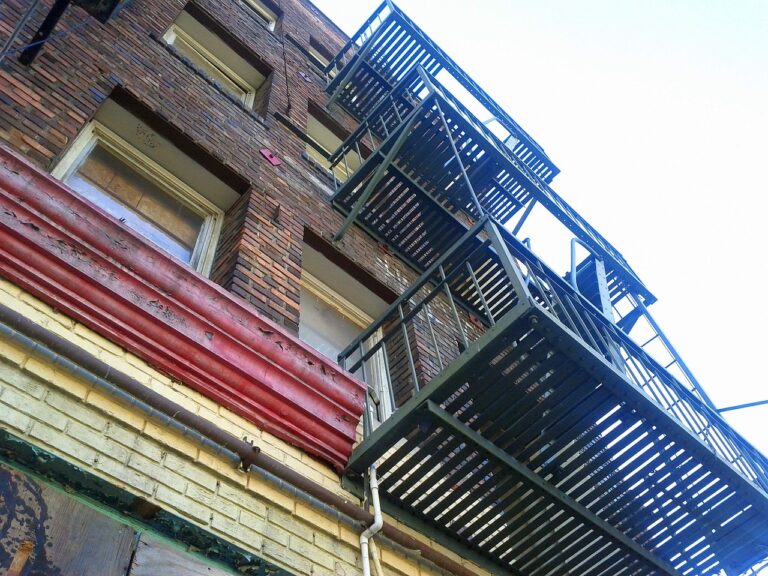Last week we dealt with the leasing of spaces for events. Today we will deal with the impact of COVID-19 on housing leases, after the legislative measures passed in the first week of April 2020 by the Government.
We are facing a historical event never seen before, defined in legal terms as “force majeure” as it is unpredictable and inevitable by all. This major force, which is the health crisis caused by the expansion of the Coronavirus, has had a full impact on contractual relationships, so that there has been a serious imbalance in the base of the business, producing, in most cases, a drastic loss of family income or total business closure.
In the next post we are going to try to answer questions such as what damages the alarm state generates and who should bear those damages in the tenancy relations.
In the case of permanent housing, it should be noted that, unlike leases of business premises, the basis of the contract has not disappeared, in the sense that the lessee continues to receive the agreed benefit, which is the enjoyment of the home. However, the economic effects of the crisis caused by the coronavirus are causing thousands of families to be unable to pay the rent. Property managers are receiving returns of hundreds of rent receipts for the month of April, for instance. This has led the Government to adopt measures to guarantee access to the permanent residence of the most vulnerable families through Royal Decree-Law 11/2020, of March 31, which adopts urgent complementary measures in the social and economic sphere, which entered into force on April 2, 2020.
For the most part, these measures are intended for those tenants considered to be “vulnerable”.
How do I know if I am a vulnerable tenant?
The requirements to be considered a vulnerable tenant are found in article 5 of RD-L 11/2020. This article establishes that the person obliged to pay the rent must be unemployed or in temporary lay-off, or other similar circumstances that suppose a drastic reduction of the income. As a calculation measure, it is established that the family unit as a whole has decreased its income to the point that it does not become more than 3 times the IPREM -minimal rent- (with some specificities depending on the case) and that the cost of assuming the payment of Income, plus basic expenses and supplies, involves an effort greater than 35% of total family income.
Next, we will analyze the main measures introduced by this rule regarding the rental of the habitual residence (not applicable to holiday’s residences).
1. Suspension of eviction proceedings (article 1 of RD-L 11/2020)
The purpose of this measure is that no one is evicted as a result of non-payment of rent as a result of the health emergency caused by COVID-19 (it is important that the cause of non-payment is the crisis caused by the coronavirus). For its application the lessee has to be considered vulnerable.
The request for the suspension of the eviction procedure must be made by the tenant and can be requested from the moment of entry into force of RD-L 11/2020 and up to two months from the lifting of the state of alarm. The suspension will have a maximum duration of six months from the entry into force of this Royal Decree-law.
The request must be submitted to the court and the vulnerability of the tenant must be revealed and the documentation listed in article 6 of RD-L 11/2020 must be attached. If the court confirms that the situation of alleged economic vulnerability is present, he will decree the suspension for the necessary time retroactively to the date on which it occurred.
It should be noted that it is not an exclusive suspension of the enforcement, but rather a procedural suspension, whatever stage it is in. The procedure must be suspended and extended afterwards.
The rule does not specify to what type of evictions such measure applies, but it does refer to article 440.3 of the LEC regarding evictions for non-payment of rent or other amounts due. This leads to the assumption that the rule only applies to the latter, since it already provides for a measure applicable to evictions due to the expiration of the term (the extraordinary legal extension that we will see below).
By way of observation, the legislator has only referred to the housing leases subject to the LAU of 1994, but making a final interpretation of the rule, we see no reason to understand that this RD-L does not apply also to the leases of habitual residence subject to previous regulations (even indefinite leases).
2. Extraordinary legal extension of 6 months (article 2 of RD-L 11/2020)
This second measure seeks to avoid that, in the current situation of confinement and economic crisis, no citizen has to go through the consequences of the expiration of the lease (possible increase in income, having to look for a new home or even stay homeless).
Among all the measures of this Royal Decree-law, this is the only one that does not require that the tenant be considered vulnerable.
This is an extraordinary legal extension of up to 6 months from the time it is requested by the tenant. It can be requested from the entry into force of RD-L and for those permanent residence contracts that expire during the state of alarm or in the 2 months after its end. This without prejudice to the parties being able to negotiate different conditions.
In reality, the norm does not speak of “contract expiration” but of contracts in which “the mandatory extension period provided for in article 9.1 or the tacit extension period provided for in article 10.1” ends, both of the LAU of 1994. But what about those contracts whose duration absorbs the mandatory extension? Maintaining the final interpretation of the rule, we understand such a measure as an extraordinary legal extension and, therefore, cumulative and binding upon the lessor if required by the lessee.
The extension is not automatic, but must be accepted by the lessor.
3. Moratorium and rental reductions for companies or large holders (article 4 of RD-L 11/2020)
We will first analyze the subjective application of this standard. As for the lessee, he must be considered vulnerable according to the requirements of article 5 previously seen.
As for the lessor, this fourth article speaks of “a company or public housing entity or a large holder.”
The article follows that a large holder is a natural or legal person who owns more than 10 urban properties, excluding garages or storage rooms, or who has a constructed area of more than 1,500 m2.
That said, we want to highlight the following:
- “more than 10 urban properties”. The norm does not specify that said properties must be dwellings or that they must be occupied.
- This definition of a large fork collides with the definition of a large fork given by Decree Law 17/2019 of urgent measures to improve access to housing, approved by the Generalitat de Catalunya on December 23, 2019.
- “who is the owner”. The legislator is not thinking only with the owners, but every owner of a real right that allows him to obtain fruits from that property. Each particular case should be studied.
- “a company or public housing entity or a large holder”, this being a list with three components. This can be interpreted as meaning that, as for companies, they are not required to be owners of a minimum number of properties, but it is applicable to all of them regardless of how many properties they have. If this is interpreted, when the legislator refers to the large legal entity holder, he is thinking of those non-corporate legal entities. Conversely, it could be interpreted that “large legal entity holder” implies that, for this measure to be applicable to companies, they must be large holders. However, this last interpretation renders the triple enumeration meaningless.
To find out if your landlord owns more than 10 properties, an online consultation at the Property Registry, which has enabled an index service for this purpose, will suffice.
The lack of case law prevents from answering these unknowns, so we will have to wait for the courts to rule.
Continuing with the measures, within a period of one month from the entry into force of this Royal Decree-law, the lessee may request the lessor to adopt one of the two measures that we will explain below. The landlord has a legal obligation to answer by choosing one of them within 7 days. If so, the application is automatic. Failure to reply within the deadline could be understood as a tacit acceptance of the measures.
The measures that the lessor can choose are:
- A reduction of rent by 50% for a maximum period of 4 months after the end of the alarm state, or,
- A moratorium on the payment of rent for a maximum period of 4 months after the end of the state of alarm, after which it must be paid in installments during the period of at least three years, or less if the contractual term is pending compliance is inferior.
No interest can be applied to the moratorium.
It results from a legal obligation of the large holders, without prejudice that the parties may reach another agreement.
If the tenants obtain the financial aid of article 9 of the same RD-L 11/2020, these measures will be lifted and the consequent fractionation as soon as they receive that money. In addition, for these cases, the rule provides that, if the applicant cannot provide any of the documents provided for in article 6, this documentation could be replaced by a responsible declaration of the lessee, notwithstanding the fact that, a posteriori, within a period of one month from that the alarm state is over, he must contribute everything.
If it is subsequently discovered that the vulnerability was not real, the lessee shall be liable for the damages and losses caused.
4. Modification of the contractual conditions when the lessor is not a large holder (article 8 of RD-L 11/2020)
When the lessor is not among those listed in Article 4, the legislator refers to the negotiation between the parties.
The lessee considered vulnerable, within a period of one month from the entry into force of RD-L 11/2020, must request the lessor to postpone or cancel all or part of the rent, and the lessor must respond within 7 days. It must be considered, as has also been said for the previous assumption, that the absence of a response after that period could be interpreted as tacit acceptance.
If the owner does not accept the tenant’s proposal and no other agreement is reached, the tenant may have access to the transitional financing aid program regulated by article 9.
The fact that in the third section of article 8 only speaks of natural persons leads us to think, as stated in the previous section, article 8 applies to all leasing companies regardless of the number of properties owned by the owner.
5. Financial aid for vulnerable households (articles 9 and 10 of RD-L 11/2020)
As previously mentioned, tenants considered vulnerable in accordance with article 5 of RD-L 11/2020 will be able to take advantage of these measures.
Article 9 basically establishes a line of credit at 0 interest with a repayment term of up to 10 years (6 years, exceptionally renewable for another 4) and for a maximum amount of six months’ rent.
Article 10 establishes a rental aid program called «Aid program to help minimize the economic and social impact of COVID-19 on rentals of habitual residence». It is directly awarded for those who cannot repay the credit and for those people who as a consequence of the economic and social impact of COVID-19 have difficulties paying the rent.
6. Moratorium on mortgage debt for landlords whose tenant has stopped paying rent (article 19 RD-L 11/2020)
This measure supposes an extension of the subjective scope of the measure already introduced by Royal Decree-Law 8/2020, of March 17, which allows a moratorium on the payment of mortgage debt for the acquisition of habitual residence for those groups considered vulnerable.
The Royal Decree-law of March 31, has introduced that it will be considered a mortgage debt or a mortgage loan, in order to request a moratorium on the payment, the debt contracted or the mortgage loans contracted for the acquisition of “homes other than the usual one in situation of rent and for which the mortgagee, natural person, owner and lessor of said dwellings, has stopped receiving rent from the entry into force of the state of alarm, (…) or stops receiving it until one month after the end of the same”.





